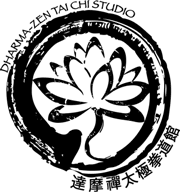Ever since I started martial arts training I’ve had a question; should I learn just one style and become proficient in one thing or should I learn different styles then synthesize and systematize them? After many years of martial arts training, I realized that in Chinese martial arts (Wu Shu) learning forms and learning striking skills (San Da) are not the same. Every school practices their own special kind of style, like T’ai Chi Chu’an, Xing Yi, Ba Gua or Shao Lin. However, even when you can perform the form very well, it doesn’t mean you can also use it in a real fight. If you want to be good in San Da then you have to focus on just this part. For instance, there are a lot of Wu Shu forms made just for performances; we call it “Showy Boxing”. When you see people doing a form on TV, and it looks nice, then it can’t be used in a fight.
“Martial Arts” is two words and is likewise made up of two components. Forms belong to the “Art” part and striking skills belong to the “Martial” part. If someone focuses only on the forms training then their style will be “Showy Boxing” and be very limited in any kind of real life conflict. But if someone focuses only on the striking skills, neglecting the Art part, then I feel he or she will be a barbarous bull and gravely short of substance. So I think forms and striking skills training must complement each other for any style to be a real “Martial Art” and any person to be a real martial artist.
After I started to teach martial arts I began to meet a lot of different kinds of people. Some people have never practiced martial arts before. Most people have done some martial arts training, usually when they were young. Only a few people have had a lot of martial arts experience. I found that even the people who have had a lot of different kinds of martial arts training sometimes didn’t get the point of what they were learning. They would know the sequence of the form but not perform it very well. For example, I have seen people who have practiced one style of T’ai Chi for many years, but from the way they move I see how their body is still stiff. They also don’t know how to use the power their body is generating.
Others don’t understand all the components of their style. For example, Tae Kwon Do or Kick Boxing are excellent martial arts for teaching legs attacks. However some of these practitioners don’t like to stretch their legs; they only want to focus on their kicking skills. If they don’t have good flexibility they get injured easily and have trouble keeping their balance. They don’t understand how flexibility and balance are important to their art.
Just as with martial arts training, how do we know when we should know a little about many related things or when to invest the time and energy to become truly proficient at one thing? In this disorganized and information dense age, it is very easy to get information about something but it’s also much easier to get confused. People still like to hear advice from an expert. Modern day experts are much more specialized now than they were in the past. For example two hundred years ago a doctor would have learned in school the most modern way to repair your shattered leg and rehabilitate it too. Now there is so much more specialized information that you would need to see at lest three doctors; an orthopaedic doctor for the bone repair, a neuropath for the nerve damage and a rehabilitation expert to recover as much function as possible. One person alone can no longer know all there is to know about repairing a shattered leg.
It takes a lot of time and highly focused attention to be an expert. Time and attention are limited quantities. If you say to someone, “I’m good at doing this thing, and that thing too” you are likely to be labelled a boaster and not believed. It isn’t possible to be an expert in everything. As soon as you split your time and attention your expert knowledge about one thing becomes less. You need to synthesize and systematize what you know and learn towards one goal or subject. In this way learning Wu Shu, anatomy, Chinese Medicine and Taoist, Buddhist philosophy becomes one area of expertise…an expert T’ai Chi teacher.
–Danny
